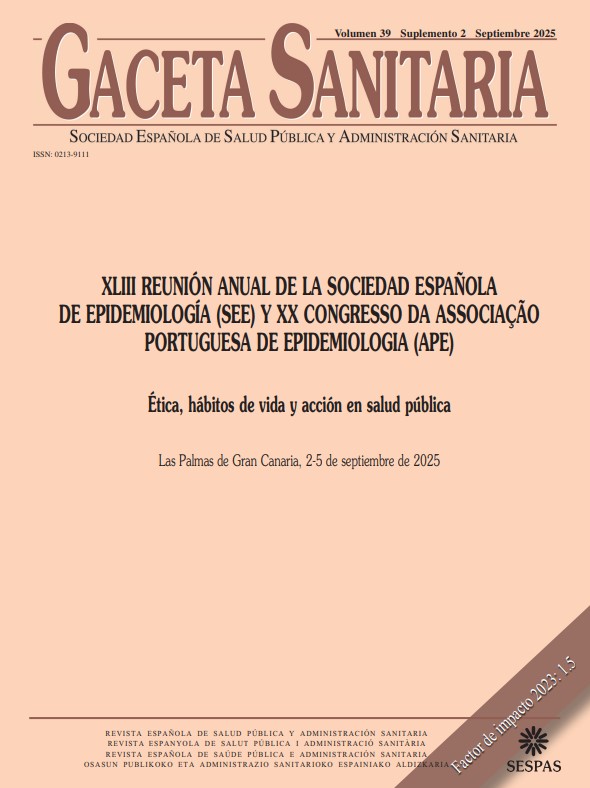574 - ADDRESSING TYPE 2 DIABETES MELLITUS´ IMPACT ON QUALITY OF LIFE WHEN LIFE IS DEFINED BY A LOW-INCOME SETTING
Universidad Miguel Hernández; Instituto de Salud Pública-PUCE, Quito; CIBERESP.
Background/Objectives: Nearly 13% of adults in the Americas live with Type 2 Diabetes Mellitus (T2DM). Managing T2DM in an illness-inducing environment affects patients' daily lives. This study explores the self-perceived impact of T2DM on quality of life using the Diabetes Health Profile 18 (DHP-18), considering sociodemographic and healthcare factors in a low-income setting in Quito, Ecuador.
Methods: This cross-sectional study included individuals with T2DM in health district 17D06, Quito, Ecuador. We recruited 570 adults, diagnosed before 1st January 2019, between April 2022 and March 2023, using patient lists from health professionals at public health facilities and consecutive face-to-face invitations. DHP-18 measures three impact dimensions: Psychological Distress (PD), Barriers to Activity (BA), and Disinhibited Eating (DE). All questions were scored from Never ('not impacted') to Always ('very impacted'), with the sum forming the DHP-18 score (0-100, with 100 being the most severe). We included sociodemographic variables, behavioural risk factors (BMI, tobacco, alcohol, physical activity), and the Multidimensional Scale of Perceived Social Support (MSPSS). Median DHP-18 scores were compared across subgroups using the Kruskal-Wallis test.
Results: The overall DHP-18 score was 29.63 (IQR: 20.37-40.74), with no significant gender difference. Individuals < 65 years had slightly higher scores than those #1 65 (p = 0.056). This age difference was more pronounced in PD and DE dimensions (p = 0.029, p = 0.026), with older adults reporting lower scores (PD Mdn: 16.67, p = 0.008; DE Mdn: 33.33, p = 0.018), suggesting a lower T2DM impact on mental health and less disinhibited eating. University-educated participants reported the lowest impact (24.07, IQR: 16.67-40.74) compared to those with primary education (31.48, IQR: 22.22-42.59, p = 0.050). Physically active patients (#1 150 min/week) had lower scores than inactive ones (29.63 vs. 31.48, p = 0.048). Higher perceived social support was linked to less impact on quality of life (27.78 vs. 33.33, p = 0.001).
Conclusions/Recommendations: In this low-income setting, younger adults experienced greater diabetes-related impact on quality of life, particularly in psychological distress and disinhibited eating, possibly due to work schedules and social pressures. Perceived social support, physical activity, and higher education appear protective, with lower DHP-18 scores. The findings highlight the need for systemic interventions that acknowledge both the disease burden and the health and social system barriers shaping patients' experiences.
Funding: Funded by the ERC, programme Horizon 2020 (GA804761).















